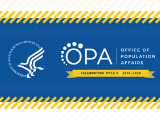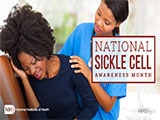Barbershops Help Black Men Lower Their Blood Pressure
Marc Sims was surprised when he walked into his neighborhood barbershop one Saturday morning two years ago and spotted several strangers carrying medical gear. The 43-year-old law-firm operations clerk, a regular at the Inglewood, California, barbershop, learned the strangers were engaged in a research study.
Sims overheard something about measuring blood pressure and about “a health crisis” in the black community. He waited for his weekly turn in the barber’s chair and watched the technicians strap blood pressure cuffs around the arms of several patrons and pumped the cuffs full of air. He listened as they talked to the men about their measurements and what they meant. “Not for me. I feel fine,” he thought, even though he hadn’t seen a doctor in years.
The healthcare workers asked Sims if he’d like his blood pressure checked. After nudging from barbershop owner Eric Muhammad, Sims surprised himself and relented. His reading: 175/125 millimeters of mercury (mm Hg), seriously high numbers that signaled he was at a dangerous risk for a heart attack and stroke. A normal reading is less than 120/80 mm Hg.
“I couldn’t believe how high my blood pressure was,” says Sims, who began to reevaluate his health. “I have an 8-year-old son and I want to be there for him. That’s what motivated me to join the program.”

The program was the centerpiece of an NHLBI-funded study led by researchers at the Smidt Heart Institute at Cedars-Sinai Medical Center. It involved placing pharmacists at African-American-owned barbershops so they could monitor the customers with high blood pressure and prescribe medications. The barbers also were trained to measure blood pressure.
When the program started, researchers hoped that the unusual intervention would lead to significant reductions in blood pressure among black men, who have the highest levels of high blood pressure of any racial, ethnic, or sex group in the United States. This group is also among the hardest to reach. That is why the barbershops, which often serve as trusted social hubs for black men, were chosen as sites for the study.
The results were impressive, researchers say. News of the potentially lifesaving intervention comes at an appropriate time: June is Men’s Health Month. The success of the program could have far-reaching implications for larger efforts to improve health among black men: high blood pressure, or hypertension, is a major risk factor for developing heart attacks, chronic kidney disease, stroke and other health problems.
Researchers enrolled 319 African-American men, ages 35 to 79, who had high blood pressure and who were regulars at one of 52 black-owned barbershops in the Los Angeles area. They randomly assigned the men to one of two groups: an intervention group that was encouraged by their barbers to meet with pharmacists who made “house calls” to the barbershops and prescribed blood pressure medications, or a control group that simply got encouragement from their barbers to make lifestyle changes and doctor appointments. The pharmacists worked in collaboration with the intervention group participants’ doctors.
After six months, 63 percent of the men who worked with the pharmacists achieved a healthy blood pressure level, while only 12 percent of the men in the control group did so. The intervention group achieved an average blood-pressure level of less than 130/80 millimeters of mercury (mm Hg). In the control group, the average blood pressure fell to 145 mm Hg.
Researchers say the study was the first to show clear-cut evidence that a medical intervention by a pharmacist in collaboration with a barber can make a key difference in the health of the barber’s regular patrons. The researchers published their results in the New England Journal of Medicine.
“I’ve watched the blood pressure of my clients go down, and that’s a big win,” Muhammad said.
Sims now has his blood pressure under control thanks to medications and healthy lifestyle changes, including an improved diet and more exercise. “My advice to people,” said Sims, “get tested for high blood pressure regularly. It can save your life.”
A version of this blog was previously published in NHLBI News.
Elder Abuse: A public health issue that affects all of us
My Story of Recovery


